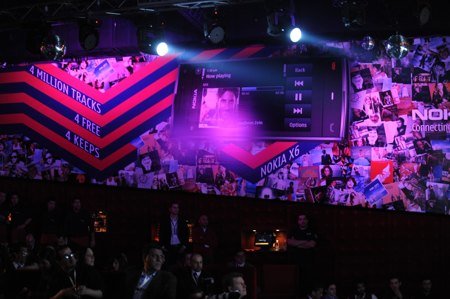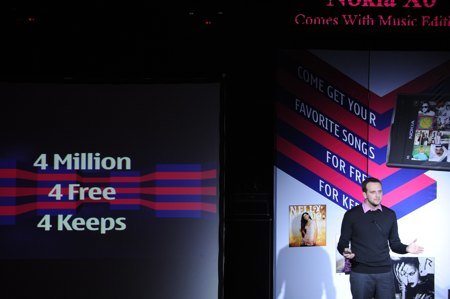I really wish I had a time machine in my basement. Here is what I would do: pay a visit to Cairo in the 1950s or 1960s. Here is one time destination I would travel to: 24 February 1966, Cairo. I would key-in time and place on the machine’s touch screen and seconds later would be walking in Cairo University, near a building that houses one of the university’s large halls. If I could sneak myself in the building I would see President Jamal Abel Nasser as he arrives to attend a concert by Umm Kulthoum, who was scheduled to sing ‘Amal Hayati’ on the occasion of Police Day. Now I am not an Umm Kulthom fan but it would be cool to see this legendary Arab diva live, while also being in the same room with the enigmatic Abdel Nasser. But my main purpose would be to get up on the stage and tell Umm Kulthoum, the President and the audience something:
“You will not believe this, but I just travelled to you from the future.. from the year 2010. This song that you have just performed my dear lady, in fact, all your songs and tens of thousands of other Arabic songs from the past and the future will, in 54 years, be available for listening and purchase through little phones that millions of people carry with them.. like walkie talkies. And guess what? There will be a commercial company that will make this possible. And that company will be from Finland. Today that company produces rubber boots”.
At that point, security agents will probably storm the stage. I would press a button on my time’s machines small remote control in my pocket and be zipped back to the present. Phew..
That rubber boot company is Nokia.
A company that is absolutely hell bent on fighting for its prominent position in the mobile market. A company that is absolutely resolute about being relevant to people around the world by being totally local.
And what is more local than a culture’s songs and music?
What Arab internet companies have failed to do so far, Finnish Nokia has just accomplished: creating the largest Arabic digital music store and working on putting it in the hands of millions of Arab consumers. It has launched its ‘Comes with Music’ initiative in 11 new Arab markets recently in a glitzy Beirut event to which I was invited (along with a huge contingent of Arab journalists and bloggers). These countries are Egypt, Lebanon, Jordan, Palestinian Territories, Iraq, Saudi Arabia, the United Arab Emirates, Kuwait, Qatar, Bahrain, and Oman.
And here is how our friends from Finland intend to revolutionize the Arab music market.
They will release a touchscreen phone (Nokia’s first with capacitive screen by the way) called the X6. When you by that phone in the mentioned Arab countries you will have access to a music store of 4 million tracks, including “tens of thousands” of Arabic songs. And get this: you will be able to download as many songs as you like during a one year period and keep them forever.
Think about it: just in a few days, you will be able to legitimately download every song you have in your current music collection (imagine: all you current CDs, your old tapes if you are as old as me, and all the pirated MP3 you have on your hard disk). Then, you could start downloading all the albums of your favorite artists that you still don’t own. Then you could spend the rest of the year exploring all kinds of new and old music, potentially downloading thousands and thousands of songs!
It’s pretty crazy. But true.

Now the bad news: this “Comes with Music” thing will, initially, be only available on the X6, a US$ 600 smart phone. Nokia say that other phones will follow.
The music will be DRM protected. Which means it will only play on one PC (also, no Mac support yet) and your phone.
And, for now, you will not be able to buy music “a la carte” (as Nokia people like to say) if you don’t have a Comes with Music phone.
Still this is one hell of an interesting strategy to approach the Arab market with. This store has virtually no serious competitor. Apple doesn’t care about this market and the iTunes Music Store can’t be used with credit cards with billing addresses in the region. It’s a market where music piracy is rampant and old style music retail (selling legit CDs and before that tapes) is weak. I remember going to downtown Amman in the 1980s and it was dotted with “tape stores” who almost exclusively sold pirated tapes by the truckload. Not exactly a great situation for artists and music companies.
Nokia is really serious about this. When I talked to their music label relations guy Raby Hamza in Beirut, he confirmed that they talked to all the major music companies in the region, and also to smaller alternative labels, like Lebanon’s Incognito, which is one of the better known distributers of new, alternative forms of Arabic music form the Levant and Egypt. And although Nokia is not as far as Apple’s iTunes is when it comes to enabling independent artists to easily sell their music online, the company already works with so called “aggregators” of music form smaller independent labels worldwide. So it could be possible that, in the coming years, a bunch of guys in a garage band in Zarqa or a teenage girl with amazing vocal talents in Saudi will be able to sell their music on the Nokia music store and build an online following instead of going through big corporate labels.
So instead of coming to the market with a complicated proposition and per track pricing, Nokia has opted to hit big, with an all you can eat model to test the waters.

The Nokia brand is trusted by young an old in the Arab region. And while someone like myself would not find the service attractive (1.DRM, 2. No Mac support, 3. it’s highly unlikely I will buy the X6), the all-you-can-eat proposition, especially if made available on more affordable devices, might, for the first time, create a pan-Arab digital music market, with a comprehensive catalogue and accessible to the Arab mainstream.
And although all of this is driven by commerce and a quest to sell more mobile phones, the cultural implications are potentially big. Will making music become a way to make a living for more young Arabs? Will this music store (an the inevitable competitors who will follow) affect the development of Arabic music and singing itself, by enabling people to discover new emerging genres of Arabic musical expression?
Music is a critical embodiment of culture. So besides the commercial significance of digital music distribution initiatives such as Nokia’s, it is also intriguing to ponder the fact that a Finnish global company (with a large team of Arabs in the region, of course) is bringing this about. Hence my wish to time travel half a century back to inform the pioneers of contemporary Arabic song about what will be!

Nokia’s Ayman Shalhoub announces “Comes with Music” on the Music Hall stage in Beirut
Comments
3 responses to “Who can revolutionize Arabic music? A bunch of people from Finland and their friends, perhaps?”
2 wrongs dont make a right Ahmad:
1. everyone knows that DRM is over.
2. because no one would buy content with DRM they offered it for free
its all because if the takhallof of the Arabic labels. they are holding onto their content catalogues thinking that in the FUTURE a white knight will come and pay the billions for their songs.
its not gonna happen, and with time the only thing guaranteed is that the value of those catalogues will go down.
I saw these two words “DRM protected” and immediately stopped reading. I’m sorry but DRM just killed the idea for me.
@Hassan, DRM is dead, yes, thank god. However if I know my people, when it comes to technology, we are at the lower end of the bell curve. Maybe 10 years behind or so. We just discovered BB FFS!
I really don’t see any of the general populace of Arab youth having the foresight or technical savvy of realizing what DRM is in the first place. I get the general feeling from many people that this is how technology works. I even had discussions with people defending a said company’s DRM strategy as “normal” or “its their right.”
I don’t know maybe I am just bitter
/pessimism